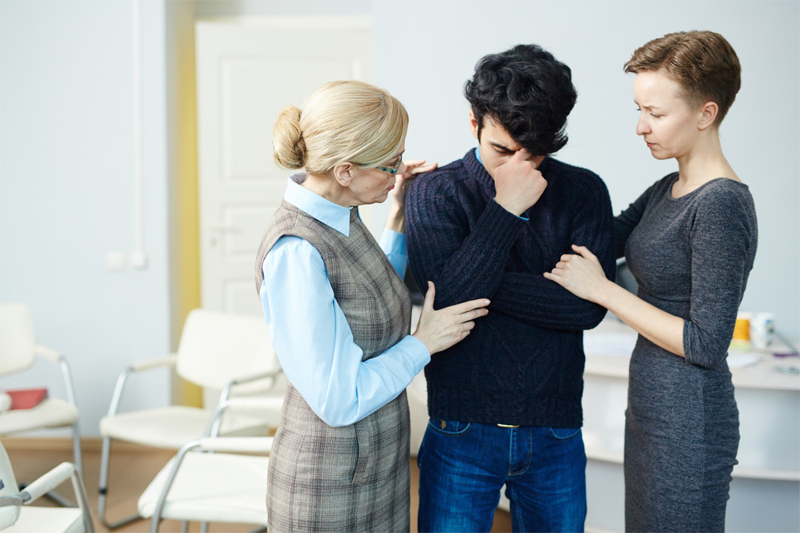 When it comes to stopping drugs, it is important to first acknowledge that you have a problem. You can learn more about the common drug addiction signs here. Drug addiction does not discriminate. No matter your socioeconomic status, your upbringing, race, or gender, drug addiction affects all walks of life. The very first step in changing your life and stopping drugs is to recognize that you have an addiction.
When it comes to stopping drugs, it is important to first acknowledge that you have a problem. You can learn more about the common drug addiction signs here. Drug addiction does not discriminate. No matter your socioeconomic status, your upbringing, race, or gender, drug addiction affects all walks of life. The very first step in changing your life and stopping drugs is to recognize that you have an addiction.
If your recreational drug habit has progressed into something more serious, here’s how to tell you could have a problem with addiction.
Does Stopping Drugs Feel Like an Impossible Task?
If you have reached a point where the thought of quitting your drug habit seems impossible, this is a sign you could be battling addiction. Recovering from a substance-use disorder (SUD) is no easy feat, and most of the time, it cannot be achieved alone. Whether you commit to an inpatient or outpatient rehabilitation program, you’ll also need a very strong support network.
The U.S. is home to some of the world’s top drug rehabilitation centers in Texas to assist in turning your life around, such as Dana Point Rehab Campus. Before you commit to a recovery program, here’s how to identify and accept that you need professional help.
The Top Signs of Addiction
Addiction to any type of substance takes place when the body builds an immunity or resistance to the effects of that substance. This means that over time, your body requires more of the substance in order to feel the effects. Whether it’s prescription painkillers, schedule one street drugs, stimulants, steroids, or alcohol, addiction can result from overuse.
While some people may display varying symptoms, addiction can wreak havoc on the mind and body all the same. If you feel like you could have a drug addiction, it’s important to ask yourself the following questions:
- Are you using a drug or substance to fill a mental or emotional void in your life?
- Is it absolutely essential to get your hands on drugs every day and do you feel panicked if your ”stash” runs low?
- Have you begun to notice new problems in your life centered on personal, work, or relationship neglect?
- Are you neglecting your normal, day-to-day responsibilities such as going to work, checking in on family, etc.?
- Have you started to use drugs in dangerous conditions such as at work, while driving, while looking after children?
- Have you run into trouble with the law regarding your drug use?
- Has your drug tolerance changed and do you need more substance to feel the same effects?
- What are your close relationships like, are they affected by your drug use?
Ultimately, if your life priorities have changed, and your thoughts, actions, and activities all revolve around drug use, you are most likely battling drug addiction.
Physical Symptoms of Drug Addiction
Aside from these behavioral changes, you will also begin to display certain physical characteristics that point to a drug problem. Some of the most common cues include:
- Changes in weight especially abrupt weight loss
- A major change in personal hygiene
- Changes in the skin, including scratches, open sores, and acne
- Dental problems
- A major disruption in sleep patterns or lack of sleep
- Overly dilated or restricted pupils, depending on the drug of choice
Remember that these physical signs tend to look different from one person to the next. It also depends on the drug of choice and how it’s used.
Turn Your Life Around and Get Your Health Fix Here
Stopping drugs and overcoming addiction may be one of the toughest personal challenges to overcome in your lifetime. With the right support network, it’s 100% achievable. Get your life and health back on track and explore the rest of this website for nutrition advice, healthy recipes, and much more.

